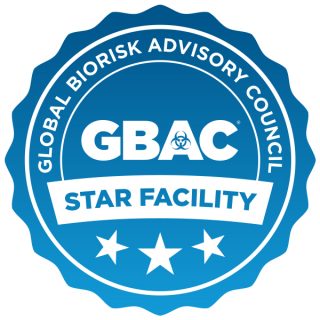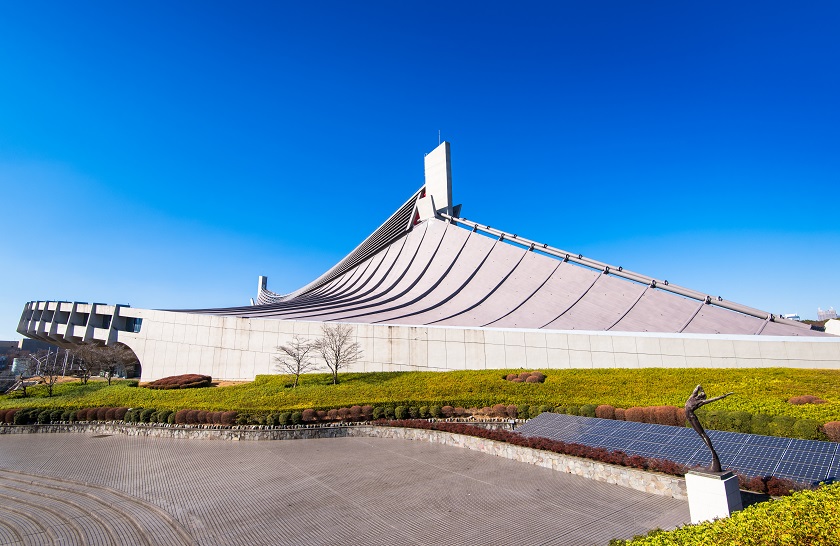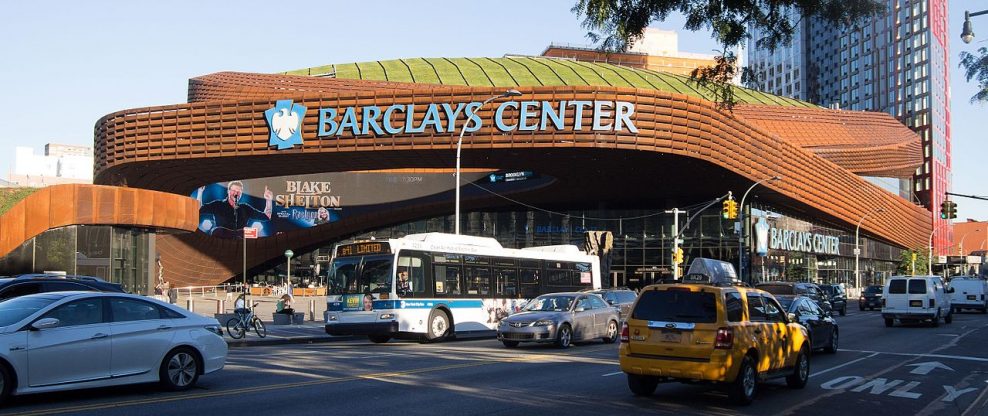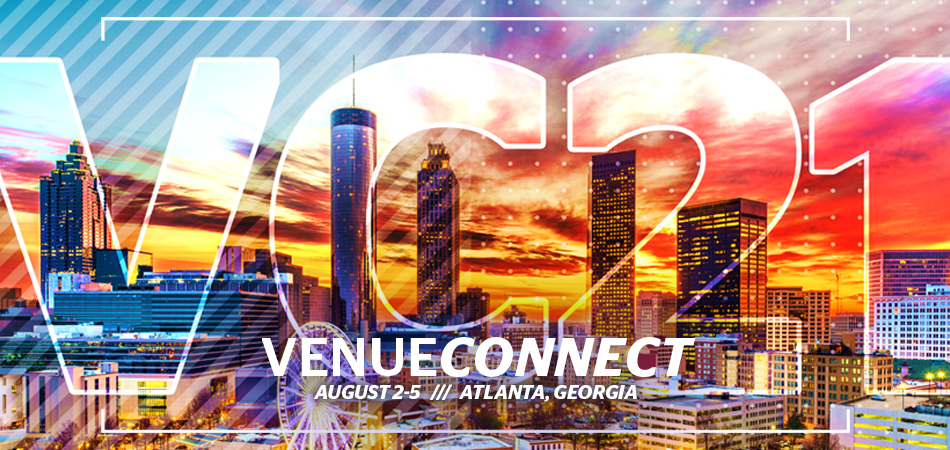TRG Arts Study Reveals Majority of U.S. Performing Arts Organizations Expect In-Person Performances to Resume by October 2021
By Diane Johnson
More definitive guidelines on social gatherings are enabling U.S. arts and culture leaders’ comeback plans, with 55% of U.S. performing arts organizations planning live, in-person performances before October 2021, according to a new study released by international arts management consultants TRG Arts. The study, “Arts and Culture Comeback Planning: June 2021,” also reveals two-thirds of U.S. programming will be the same mix of traditional and contemporary works as before the pandemic, while an additional 14% will have a heavier emphasis on traditional or known works, which may indicate the desire for a semblance of “normalcy.” This is the fifth in a series of studies on the plans of arts and culture organizations since the COVID-19 pandemic began.
Among the study highlights compiled from a survey of organizations in the United States, Canada and the  United Kingdom:
United Kingdom:
• 2021 in-person performance – 94% of U.S. organizations plan to host live in-person performances by year end 2021.
• Programming – The minimal level of investment in new works at U.S. venues indicates that most organizations are not changing their approach post-pandemic, even with financial support such as Shuttered Venues Operator Grants and PPP loans.
• Ticket sales and demand – As of June 2021, 52% of U.S. organizations have not yet put multi-performance subscriptions on sale. Where subscriptions are on sale, demand is largely the same as pre-COVID. Where single event tickets are on sale, demand compared to pre-pandemic sales volume is weak.
• Openings by region – By region, more than half of U.S. organizations plan in-person performances by the end of Q3, except for the South (40%).
• Openings by genre – After an overall slow return to in-person performances across genres except opera in Q2 2021, organizations’ plans to return improve in Q3. Presenter (74%), multi-disciplinary (59%), and theatre (48%) show the greatest optimism.
• Safety – COVID safety protocols will vary widely based on country and region. 13% of U.S. organizations expect the audience experience to remain unchanged from pre-pandemic, not requiring or requesting masking or other safety measures.
• Pricing – 71% of arts and culture leaders in all three nations have committed to keeping pre-pandemic ticket prices the same for their COVID comeback season. Of those who are anticipating a price increase, a majority are increasing prices by 10% or less. 13% of organizations are lowering prices compared to pre-pandemic, and 4% are offering “Pay What You Wish” for the coming 2021-22 season.
“The June Comeback Study finally brings news that we’ve all been eager to hear after more than a year of COVID ravaging our sector,” said TRG Chief Executive Officer Jill S. Robinson. “The challenge for performing arts organization leaders is to create experiences that their audiences will find exciting and new, yet at the time somewhat familiar to reinforce the sense that we’re back to ‘normal.’ As always, they must listen to their customers deeply and be prepared to take action.”
Survey responses were collected from 226 organizations across all disciplines of performing arts in the U.S. (163), Canada (15), and the U.K. (48).
The full study of “Arts and Culture Comeback Planning: June 2021” is available at https://go.trgarts.com/ComebackStudyJune2021.
More IAVM Member Venues Continue Getting GBAC STAR Accreditation
By ISSA and R.V. Baugus
United Center in Chicago, the largest arena in the United States, has reached another milestone with its GBAC STAR™ Facility Accreditation from the Global Biorisk Advisory Council™, (GBAC), a Division of ISSA. Additional facilities to earn the accreditation for cleaning, disinfection, and infection prevention include Boston Symphony Hall in Boston; Atlanta Convention Center at AmericasMart in Atlanta; and more.
“From stadiums to hotels to convention centers to malls, there are many facilities around the world that  are implementing cleaning for health best practices that maximize health and safety, efficiency, and resources,” said GBAC Executive Director Patricia Olinger. “Now when people visit new or favorite facilities, they can be confident that their wellbeing is a top priority.”
are implementing cleaning for health best practices that maximize health and safety, efficiency, and resources,” said GBAC Executive Director Patricia Olinger. “Now when people visit new or favorite facilities, they can be confident that their wellbeing is a top priority.”
The United Center, home of the Chicago Bulls and Chicago Blackhawks, hosts more than 200 events each year and has welcomed over sixty million guests since its opening in 1994. Meanwhile, Boston Symphony Hall is a historic concert hall that was built in 1900 and is home to the Boston Symphony Orchestra. Featuring an organ that is more than 70 years old, replicas of Greek and Roman statues, and stunning architecture, the building is considered one of the top concert halls in the world.
The latest facilities to achieve GBAC STAR accreditation include:
Convention Centers
Albany Capital Center in Albany, New York
Atlanta Convention Center at AmericasMart in Atlanta
Regina Exhibition Association Limited in Regina, Saskatchewan
Museums or Cultural Venues
Northwest Washington Fair in Lynden, Wash.
Port Discovery Children’s Museum in Baltimore
Stadiums or Arenas
Rogers Place in Edmonton, Alberta, home to the NHL’s Edmonton Oilers
United Center in Chicago, home to the NHL’s Chicago Blackhawks and the NBA’s Chicago Bulls
Theatre or Performing Arts Center
Boston Symphony Hall in Boston
“We are thrilled that so many facilities are taking advantage of the GBAC STAR accreditation program and making their environments safer for guests and employees,” said ISSA Executive Director John Barrett. “Cleanliness will continue to be an important consideration for people when choosing where to visit, and organizations that have a clear and organized approach set themselves up for success.”
Learn more and apply for GBAC STAR Facility Accreditation at gbac.org/star.
Find accredited facilities and those pursuing accreditation via the GBAC STAR Facility Directory at gbac.org/directory.
IAVM members seeking to apply for accreditation through GBAC, please use the link https://gbac.issa.com/iavm/!
Tokyo Summer Olympics By The Numbers
By Diana Polk
With the Tokyo 2020 Summer Olympics approaching but no foreign spectators allowed due to the COVID-19 pandemic, the personal-finance website WalletHub released its Tokyo Olympics By The Numbers report and expert commentary to help fans both get fired up for the athletic action and better understand the unique issues surrounding this Olympiad.
This report includes an infographic filled with fun facts and stats about the Tokyo Games as well as a Q&A  with a panel of leading experts on the socioeconomics of the extravaganza. You can find a few highlights below.
with a panel of leading experts on the socioeconomics of the extravaganza. You can find a few highlights below.
Tokyo 2020 Stats
$26B+ – Estimated cost of hosting the 2020 Tokyo Olympics.
$900 Million – Amount to be spent for Tokyo 2020 on coronavirus countermeasures.
$15B – Estimated economic loss for Japan from barring overseas spectators and limiting the number of domestic fans to 50% of the capacity.
80% – Share of people in Japan who want the Tokyo Olympics canceled or postponed again as the coronavirus pandemic rolls on.
44K – Number of security personnel who will work the Tokyo Games – roughly half the number of the 2016 Rio Olympics.
1st – Games to ever use artificial intelligence managed security features, with the ability to correctly verify the faces of 230 million people in one second.
15 Years – Age of the youngest member of Team USA, swimmer Katie Grimes.
For the full report click here.
Expert Commentary
Given its current vaccination count, is Tokyo safe and ready for the Olympics?
“Well, safe and ready are two different things. From a sports perspective, Tokyo is more than ready: the venues are beautiful, logistics figured out. From a public health standpoint, we do not know, do we? Their vaccination rate has been slow, but from day one they have had an excellent grasp on the virus, keeping infection and death rates low. The IOC is claiming that over 80% of the athletes will be vaccinated when they land but the world has not thrown a party like this since the virus, so it is all a big experiment.”
Amy Bass, Ph.D. – Professor, Manhattanville College
“After a slow start, the nation is now vaccinating one million citizens each day. Even then, it is unlikely to reach most of the targets necessary to label the event safe. They are attempting some forms of ‘bubble’ scenarios (athletes will not use public transportation, etc.) but, as we have seen within American sports, a ‘bubble’ only seems to work if tightly regulated, such as with the NBA bubble in 2020.”
Andrew Billings – Professor, University of Alabama
What will be the impact of the Olympics on Tokyo’s economy?
“Some leading Japanese economists are already predicting that should the Olympics take place they will negatively affect Japan’s economy: the tourism bump will not happen and the ‘Japan brand’ will not look good, not to mention that the health care system in Japan is already at max capacity before any of this is even scheduled to take place.”
Alexis Dudden, Ph.D. – Professor, University of Connecticut
“The cost of this Olympic Games to the Tokyo and Japanese economies has been immense, with most estimates putting the cost at $15.4 billion. The direct impact of the Games actually being held will help mitigate some of that, but not nearly what the benefits could have been. There will be broadcast, sponsorship, ticket, merchandise, and concession revenue, but the ticket, merchandise, and concession revenues will be fractions of what they could have been given the limited capacity numbers and restriction on international spectators. Additionally, and probably more important to the overall economy, the loss of all of the travelers paying for hotels, restaurants, and taxis, shopping, visiting museums and other attractions, and generally doing what tourists do will be significant.”
Charles Campisi, Ph.D. – Associate Professor, Baldwin Wallace University
Diana Polk is Communications Manager for WalletHub.
SeatGeek Teams Up With Barclays Center as Ticketing Partner
By NBA.com
BSE Global, the company that manages and operates Barclays Center and the Brooklyn Nets, has named SeatGeek, the mobile-focused ticketing platform headquartered in New York, as its official ticketing partner beginning this October. SeatGeek will take over ticketing for all Barclays Center events, including concerts, and Brooklyn Nets and New York Liberty games. The landmark partnership will create a ticketing experience built for the future for all Barclays Center guests.
Barclays Center will use SeatGeek’s top-rated digital ticketing platform for all aspects of the purchasing  experience, including the ability for fans to easily buy, transfer and scan their tickets through their mobile devices. Fans can also utilize SeatGeek’s platform to identify the best ticket value for a given event through its proprietary Deal Score technology, and access a dynamic arena map to see the view prior to purchasing their seats. Additionally, SeatGeek’s technology will make it easier than ever for Nets and Liberty season ticket members to seamlessly access, manage, and transfer their tickets across any device.
experience, including the ability for fans to easily buy, transfer and scan their tickets through their mobile devices. Fans can also utilize SeatGeek’s platform to identify the best ticket value for a given event through its proprietary Deal Score technology, and access a dynamic arena map to see the view prior to purchasing their seats. Additionally, SeatGeek’s technology will make it easier than ever for Nets and Liberty season ticket members to seamlessly access, manage, and transfer their tickets across any device.
In addition to ticket purchasing and management, Barclays Center guests can leverage SeatGeek’s best-in-class mobile platform to enhance their experience, including SeatGeek’s Rally technology by which fans can interact with their mobile app in unique ways like listening to a playlist pre-concert, purchasing an upgraded experience, or planning their transportation route.
“BSE Global and SeatGeek have similar DNA when it comes to innovating and adapting to the ever-evolving preferences of the live event consumer market,” said BSE Global CEO John Abbamondi. “We see great potential in leveraging SeatGeek’s latest technological developments and collaborating with them on ways to enhance the fan experience at Barclays Center.”
Since opening in 2012, Barclays Center has continually invested in technological enhancements and fan-friendly innovation both on and off the court, becoming a premier event destination globally. The arena is consistently ranked among the best in the world, including being named one of the top 20 venues of the decade by both Billboard and Venues Now after only seven years of operation.
“Barclays Center is one of the premier venues in the world, so this is a monumental deal for us as we work together to modernize the event-going experience,” said SeatGeek co-founder and CEO Jack Groetzinger. “As fellow New Yorkers, we couldn’t be more proud to bring our leading mobile technology to both our hometown and visiting fans.”
As the arena’s official ticketing provider, SeatGeek will power BSE Global’s back-office technology through its enterprise software, SeatGeek Enterprise. These industry-leading data and analytics tools will help the venue manage hundreds of events per year and better understand demand for tickets in real-time.
Enhance Your VenueConnect 2021 Experience with Safety & Security Focused Pre-Conference Workshops!

Pre–Conference Workshops are integral parts of the VC21 conference. Now, more than ever, venue staff needs to participate in professional development, and this year’s safety & security focused workshops are the perfect way to enhance your career development! Intended to provoke intellectual discussion on critical issues, methods, and theories emerging in the field of venue safety & security, both the Cyber Blended Threats Workshop and the Trained Crowd Manager Workshop are both designed to help us all adapt, transform and innovate!
Don’t forget to add one of the following to your VenueConnect 2021 registration:
Cyber Blended Threats Workshop – Venue managers can no longer think of security only in physical terms. Venue managers and executives always need to be aware of threats to their locations, guests and staff. Completely cyber-based threats were always on the periphery of worries concern for physical location managers, but new threats are emerging that are no longer just one type or the other another. A Blended Threat is a natural, accidental, or purposeful physical or cyber danger that has, or indicates the potential to have, crossover impacts and harm life, information, operations, the environment, and/or property. From hurricanes to active shooters to ransomware, threats to venues now bridge both the cyber and physical worlds, and venue managers needing to be prepared on all fronts. Workshop participants can expect to leave with a better understanding of the magnitude of Blended Threats and a sense of their importance, steps to take to in addressing these threats in their venues, and an awareness of resources available to assist them with their effort.
Trained Crowd Manager (TCM) Workshop – Designed to provide an overview on how to improve public safety and provide venue operators with an all-hazard approach to identify hazards, respond to emergency situations, and assist in crowd management during ingress, egress, and dispersal of crowds during evacuations for an overall improved guest experience. The workshop will begin with a presentation where staff responses to differing risk types, risk locations, crowd types and phases of crowd movements will be discussed. How your response will be affected by your venue type will also be explored. After the classroom presentation all attendees will visit the state-of-the-art Mercedes Benz Stadium, home of the Atlanta Falcons, for reality-based training exercises that will highlight and reinforce the earlier discussions. Attendees will be able to discuss crowd management techniques with both staff and other attendees, gaining valuable insights.
The pre-conference workshops at VC21 in Atlanta are your chance to reconnect, rediscover and reimagine, so reserve your spot NOW for just $99! If you haven’t already registered for VC21, don’t delay! Online registration ends at NOON CT on Thursday, July 22nd! Register Now!
Do you want to receive a Front Row News weekly digest?
Categories
- Allied (861)
- Architecture (147)
- Arenas (747)
- Career (897)
- Convention Centers (895)
- Education (623)
- Events (1,544)
- Food & Beverage (193)
- Foundation (113)
- Guest Experience (1,496)
- Industry News (2,270)
- Leadership (1,888)
- Marketing (150)
- Membership (2,000)
- Music (213)
- Performing Arts Centers (454)
- Professional Development (409)
- Research (127)
- Safety & Security (442)
- Sports (763)
- Stadiums (608)
- Student (159)
- Technology (516)
- Ticketing (92)
- Touring (82)
- Trends (364)
- Uncategorized (756)
- Universities (218)
- Video (25)
- Young Professional (198)
Twitter Feed
- Twitter feed loading
Recent Posts
- Monumental Sports & Entertainment Unveils Phase One Artists for the District Arts Collection, Transforming MSE’s New Arena into a Living Civic Landmark
- Cobb Convention Center Atlanta Reopens After a Major Renovation and Reveals A New Logo
- Orange County Convention Center Announces Appointment of Heather Peeples as Fiscal & Operational Support Manager
- College Park Center and Texas Hall Welcome Kristina Hill to Executive Director Role
- Cincinnati Convention Center Appoints Brian Clark as Assistant General Manager
Categories
- Allied
- Architecture
- Arenas
- Career
- Convention Centers
- Education
- Events
- Food & Beverage
- Foundation
- Guest Experience
- Industry News
- Leadership
- Marketing
- Membership
- Music
- Performing Arts Centers
- Professional Development
- Research
- Safety & Security
- Sports
- Stadiums
- Student
- Technology
- Ticketing
- Touring
- Trends
- Uncategorized
- Universities
- Video
- Young Professional
Archives
- January 2026
- December 2025
- November 2025
- October 2025
- September 2025
- August 2025
- July 2025
- June 2025
- May 2025
- April 2025
- March 2025
- February 2025
- January 2025
- December 2024
- November 2024
- October 2024
- September 2024
- August 2024
- July 2024
- June 2024
- May 2024
- April 2024
- March 2024
- February 2024
- January 2024
- December 2023
- November 2023
- October 2023
- September 2023
- August 2023
- July 2023
- June 2023
- May 2023
- April 2023
- March 2023
- February 2023
- January 2023
- December 2022
- November 2022
- October 2022
- September 2022
- August 2022
- July 2022
- June 2022
- May 2022
- April 2022
- March 2022
- February 2022
- January 2022
- December 2021
- November 2021
- October 2021
- September 2021
- August 2021
- July 2021
- June 2021
- May 2021
- April 2021
- March 2021
- February 2021
- January 2021
- December 2020
- November 2020
- October 2020
- September 2020
- August 2020
- July 2020
- June 2020
- May 2020
- April 2020
- March 2020
- February 2020
- January 2020
- December 2019
- November 2019
- October 2019
- September 2019
- August 2019
- July 2019
- June 2019
- May 2019
- April 2019
- March 2019
- February 2019
- January 2019
- December 2018
- November 2018
- October 2018
- September 2018
- August 2018
- July 2018
- June 2018
- May 2018
- April 2018
- March 2018
- February 2018
- January 2018
- December 2017
- November 2017
- October 2017
- September 2017
- August 2017
- July 2017
- June 2017
- May 2017
- April 2017
- March 2017
- February 2017
- January 2017
- December 2016
- November 2016
- October 2016
- September 2016
- August 2016
- July 2016
- June 2016
- May 2016
- April 2016
- March 2016
- February 2016
- January 2016
- December 2015
- November 2015
- October 2015
- September 2015
- August 2015
- July 2015
- June 2015
- May 2015
- April 2015
- March 2015
- February 2015
- January 2015
- December 2014
- November 2014
- October 2014
- September 2014
- August 2014
- July 2014
- June 2014
- May 2014
- April 2014
- March 2014
- February 2014
- January 2014
- December 2013
- November 2013
- October 2013
- September 2013
- August 2013
- July 2013
- June 2013
- May 2013
- April 2013
- March 2013
- February 2013
- January 2013
- May 2012
- March 2012
- December 2011
- November 2011
- October 2011
Recent Comments
- Frank Bradshaw, Ph.D., CVE on John Meyer, CVE, a Tireless Advocate of Certification for Venue Professionals, Has Died
- Neil Sulkes on Hilary Hartung, Friend to Many in Venue Marketing, Has Left Us
- Jason Parker, CVE on The Devastation of Hurricane Helene and How We Can Support One Another
- Larry Perkins on Touhey Testifies Against Speculative Ticketing Before Congressional Subcommittee
- Peter Secord on Major Players for Planned Elkhart Amphitheater Were in the Mix at VenueConnect
